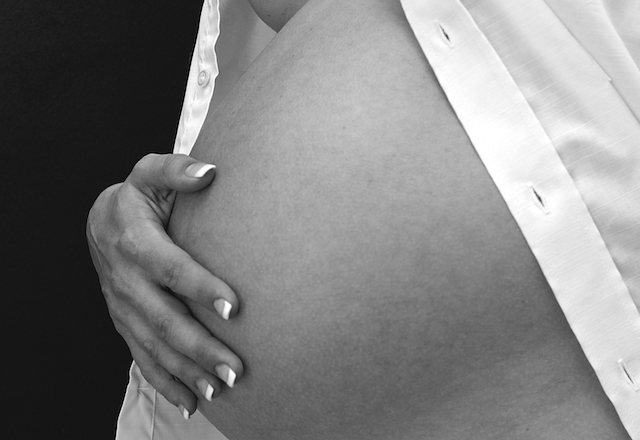Today (December 19), the Republican-dominated House passed its version of the sweeping tax bill that critics say will raise taxes for people who aren’t wealthy and cut into vital programs. The GOP-majority Senate is expected to vote tonight.
Patrisse Cullors, a senior fellow for maternal mortality at MomsRising and co-founder of Black Lives Matter, is urging people to include a less-discussed impact of the tax bill in their analysis: women of color dying during childbirth.
The non-partisan Congressional Budget Office (CBO) estimates that the tax bill will cut $18 billion from Medicaid. This program, which serves 68 million people living on extremely low incomes, helps finance nearly half of U.S. births. Despite its riches, the United States has the highest rate of women dying in childbirth among developed counrtries. Black women here are at particular risk—they are between 3 and 4 times more likely to die from pregnancy-related causes than White women. With those figures in mind, Cullors explains why this tax bill could men life or death for moms of color.
How is this tax bill relevant to maternal health?
Paul Ryan has blatantly said that he will make cuts to entitlements after the tax bill passes. This tax bill will add more than a trillion dollars to the national deficit, and we can guess that they’re going to use that to justify these cuts to entitlements. We know that the first thing to cut—by both parties—are programs for poor and working class people, particularly those [identified with] people of color. So the first cuts will likely be from programs like Medicaid, Medicare and SNAP. Women’s reproductive health care will be among the first to be cut.
Much of the mainstream discourse about this tax bill has been about how it will impact the middle class. Even among self-described progressives, there’s always an emphasis on the middle class. The words “poor people” are never uttered and certainly not “poor people of color” or “poor Black women.” Why do you think that is? Is it that they think people in these populations don’t vote? Is it a conscious effort to ignore these people?
I think a lot about this. Language is everything, especially when it comes to our two-party system. There’s a reason why [politicians] no longer identify working-class or poor people. The [exclusive] use of “middle class” means, “That’s our target audience.” If we were to talk about the impacts that this tax bill will have on poor people, we’d have to study them.
At this point they know that we vote. I just don’t think they care much about what we believe in, what is healthy for us, and what impact their policies will have on our families. There is a belief that Black people are morally inept, that our poverty is our fault, and that we wouldn’t be poor if we worked harder. It’s like with this tax bill—politicians on both sides don’t think it’s their job or their duty to represent poor people.
We know that Medicaid covers nearly half of U.S. childbirths and that a disproportionate number of the women enrolled in the program women of color. We know that while 16 percent of White women ages 15 to 44 use Medicaid, 31 percent of Black women and 27 percent of Latinx women this age use it. Who else should we be looking at?
We need to look at all of the people who will be the most impacted. We need to talk about Black poor mothers who are mostly in rural areas. We also need to look at Indigenous people who happen to be poor and trans people who are pregnant. We haven’t had that conversation at all.
There has been a lot of attention on maternal mortality recently, with ProPublica and other outlets arguing that the survival of babies carries more weight in hospitals than the mothers birthing them. With Medicaid cuts pending, what do you think will happen to this focus?
Black women have always been talking about us dying while laboring, but just in the last decade there’s been a popular conversation about Black maternal mortality regardless of income. And we have states like California and [cities like] New York that are [directly] challenging the impact of maternal mortality. With this tax bill, much of what we’re seeing around research and support for mothers will be gone. It could become dangerous in that it could roll back some of the most important victories won for Black women’s health. We’re about to see the dark ages of the ’80s and early ’90s. We’re here again.
The bill definitely on its way to being signed as law by President Donald Trump. So what should people who disagree with it do now?
I would say organize. Join groups that are fighting this current administration. And join organizations where people are putting their bodies on the line for folks who are the most vulnerable. This is a long haul fight, join something. Get on the right side of history and organize.
